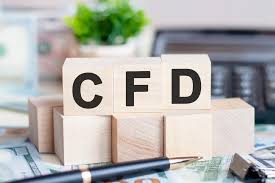
How CFDs Are Changing the Way People Invest
In recent years, Contract for Difference (CFD) trading has become increasingly popular, revolutionizing the way people invest in global financial markets. CFDs allow traders to speculate on the price movements of a wide range of assets, including stocks, commodities, indices, and forex, without owning the underlying asset. This unique feature, combined with the flexibility and accessibility of cfds, is changing the investment landscape for both novice and experienced investors.
1. Accessibility to Global Markets
CFD trading opens up access to a variety of markets that were once difficult for the average investor to tap into. Whether it’s global equities, commodities like gold and oil, or the fast-moving forex market, CFDs allow investors to trade these assets from a single platform. This broadens the scope of investment opportunities, enabling individuals to diversify their portfolios and capitalize on global market trends with minimal barriers to entry.
2. Flexibility to Profit in Both Rising and Falling Markets
Unlike traditional investing, which generally benefits only from price appreciation, CFD trading offers the ability to profit in both rising and falling markets. Traders can go long (buy) when they expect an asset’s price to rise or short (sell) when they anticipate a decline. This flexibility provides investors with more opportunities to generate returns, regardless of overall market conditions, making cfds an attractive choice for those looking to hedge or capitalize on volatile markets.
Conclusion
CFD trading is fundamentally changing the way people approach investing by providing greater access to diverse markets, the ability to profit in all market conditions, and the use of flexible leverage. As more investors embrace this modern financial tool, CFDs are likely to continue reshaping the investment world, offering new opportunities for both seasoned traders and newcomers alike. With the right knowledge and strategy, CFDs can be a powerful addition to any investor’s portfolio.